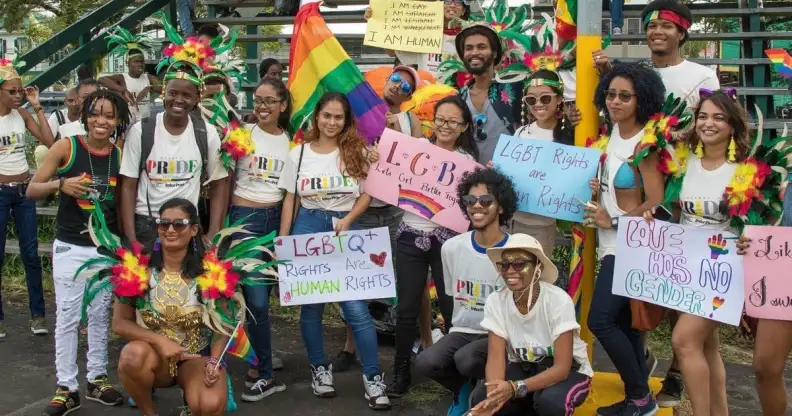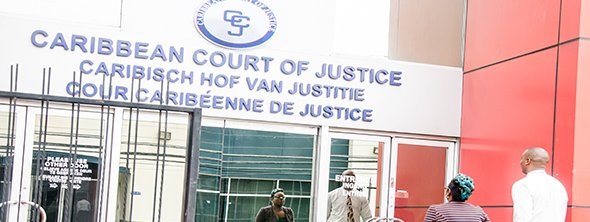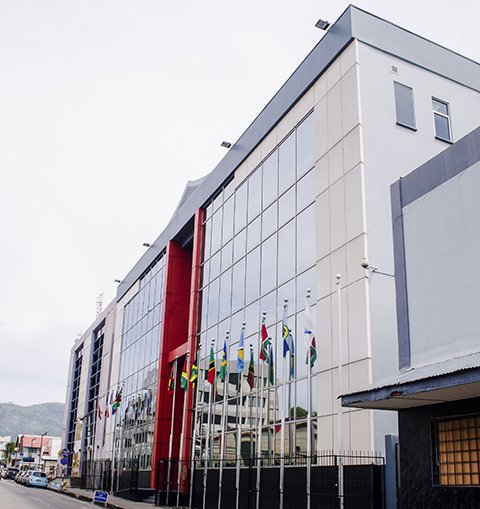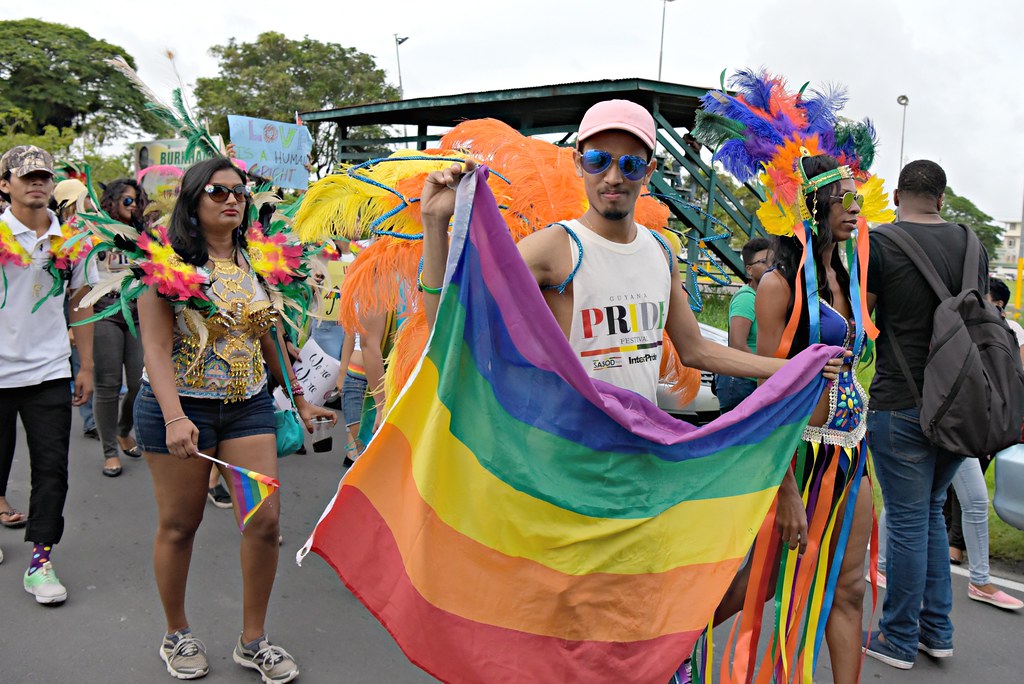Court strikes down Guyana anti-transgender law

LGBT+ activists at Guyana Pride (Caribbean Equality)
A Guyana anti-transgender law banning “cross-dressing” has been struck down, after it was used to target transgender people.
The Caribbean Court of Justice (CCJ), an international court with jurisdiction across several Caribbean and South American countries, heard a challenge to a Guyanese law that made it a criminal offence for a man or a woman to appear in a public place while dressed in clothing of the opposite sex for an “improper purpose.”
The court struck down part of a British colonial-era penal code dating back to 1893 in the South American country, which has a population of 780,000.
“No one is to be treated in a discriminatory manner by any public office or authority.”
The court ruled that the law “was from a different time and no longer served any legitimate purpose in Guyana,” finding that it was “unconstitutionally vague, violated the appellants’ right to protection of the law and was contrary to the rule of law.”
The CCJ noted that Guyana’s Constitution “protects its people from discrimination and states that no one is to be treated in a discriminatory manner by any public office or authority.”
Guyana told to safeguard “fundamental rights”
The challenge was led by four transgender women who were arrested in 2009 and punished for “cross-dressing in public.”
At the time of their 2009 conviction, the transgender women were told by a magistrate to “go to church and give their lives to Jesus Christ,” and were handed fines of approximately $100 US dollars each.
Siding with the appellants on November 13, the CCJ found that “the law resulted in [transgender] and gender nonconforming persons being treated unfavourably by criminalising their gender expression and gender identity.”

The Caribbean Court of Justice (CCJ)
It also found that the magistrate had acted inappropriately by telling the women to turn to Jesus.
Ruling in the case, The Honourable Mr. Justice Adrian Dudley Saunders, said: “Law and society are dynamic, not static. A Constitution must be read as a whole.
“Courts should be astute to avoid hindrances that would deter them from interpreting the Constitution in a manner faithful to its essence and its underlying spirit.”

Flags of member countries fly outside the Caribbean Court of Justice in Trinidad and Tobago (CCJ)
Justice Saunders added: “If one part of the Constitution appears to run up against an individual fundamental right, then, in interpreting the Constitution as a whole, courts should place a premium on affording the citizen his/her enjoyment of the fundamental right, unless there is some overriding public interest.”
LGBT+ rights in Guyana
The first Pride parade took place in Guyana in June 2018, with hundreds of people marching through the streets of the country’s capital, Georgetown, to call for an end to anti-LGBT discrimination.
Guyana is the only country in South America where homosexuality is still illegal, with its colonial-era penal code outlawing gay sex for both men and women.
Men can technically face up to life in prison for having gay sex under sections of the Colonial-era penal code.
The validity of the provisions is in doubt, however, following court rulings in the nearby Trinidad and Tobago and Belize that struck down the anti-gay provisions in their respective penal codes.
LGBT activists have called on Guyana to decriminalise homosexuality in the wake of the rulings.


